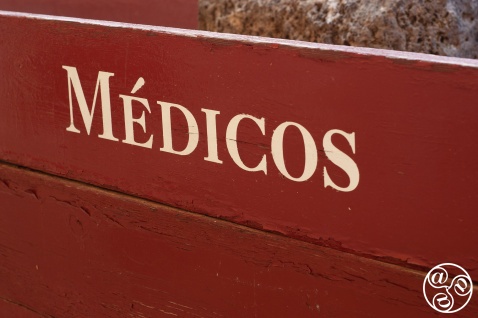
Doctors in Spain are regulated by the “Colegio de Médicos" |
|
Finding a Doctor in Southern Spain
Doctors in Spain are regulated by the “Colegio de Médicos” (Medical College – an official body). Doctors throughout Andalucia, whether they are Spanish or foreign, should be able to prove that they are “colegiados”, or members of the Medical College. This is an all important criteria for ensuring that a doctor has proper qualifications, and especially to ensure that doctors from other countries are approved and regulated in this country.
Medical Training
Doctors in Andalucia who are members of the Medical College have undergone medical schooling and practical training equivalent to that in any European country. Just as many foreign born doctors work in Spain, it is not uncommon for Spanish doctors to spend time working in other EU countries. The fact that Spain has produced a number of prestigious researchers, doctors and scientists who have made a name for themselves in the United States, the UK, Germany, France and other regions known for high medical and scientific standards and outstanding results is a source of Spanish pride (albeit bittersweet pride, given the brain drain it represents).
Foreign Doctors in Andalucia
In Andalucia you can find doctors from just about every corner of the planet. There is a rather large contingent of doctors, dentists and specialists from Argentina due to the recent financial crises in the Latin American country and an especially friendly relationship with Spain.
Given the importance of the Arab world in local history, it is perhaps not surprising that a number of doctors from Arab countries are drawn to this area. They tend to speak Spanish and blend into the public and private system, as do the Argentines.
Especially in areas like the Costa del Sol, where so many nationalities co-exist, there are numerous doctors from the UK, Germany, France, Eastern Europe, India and many other parts of the world. If you are particularly looking for an English speaking doctor from the UK, contact the British Consulate in Malaga for an up to date list. Many tourist offices also keep a list of English speaking doctors and the SUR in English, a weekly paper available every Friday throughout the Costa del Sol, generally carries advertisements for some of the local English dentists and doctors (doctors are allowed to advertise their services in Spain). General practitioners or family doctors are listed in the Yellow Pages under Médicos and you will find specialists under their respective specialities.
Communicating with your Doctor
Language is an important issue as it is so crucial that you and your doctor understand each other perfectly. Thanks to a new interpreter service. Some public hospitals and health centres now have interpreter service on call at all hours of the day. Also, in areas like the Costa del Sol you will find that many clinics and the Hospital Costa del Sol in Marbella have volunteer interpreter services available. However, you should check to ensure their timetable coincides with your appointment. In the end, it is your responsibility to be sure that you can either speak with your doctor in Spanish or provide an interpreter.
Doctor/Patient Ratio
One of the most important incentives for contracting a private health insurance policy is the ratio of doctors to patients in the Andalusian public health system.
According to press reports at the beginning of this newest century, the ratio of doctors to inhabitants is not exactly comparable with other western European countries. Therefore, doctors are often hard pressed to meet the needs of waiting patients. These overworked, harried medical professionals often complain in the press that they only have around three to five minutes - if that - on average to spend with each patient. The norm is to give several patients an appointment for the same time – each with a number showing their priority. This is a cause of frustration for those waiting to see the doctor. For many people, especially foreigners, this is a deciding factor in opting for private healthcare.
Medical Records
Traditionally, patients have been responsible for storing and organising their medical records. Before assuming that your records will be kept on file at any private or public clinic, it is best to check on the policy. Even if records are kept on file, it is important to keep your own copies as well.
If you take regular medication, are undergoing a course of treatment, or suffer from a long term illness or disability, you should ask your present (overseas) doctor to provide a short statement about your case and have it translated into Spanish before arriving in Spain.
Specialists
Every possible medical speciality is represented across Spain. Throughout Andalucia, you will find dermatologists, cardiologists, gynaecologists, and specialists in internal medicine, gastroenterology, endocrinology, oncology and any other field in which you need an expert.
To see one of these specialists in the public health system you will have to be referred by your GP (family doctor). This is often the case with some private health insurance policies. The big difference between the two is how long you might wait to see a specialist. In the public health system, wait times can be long, regardless of what the law states. This is another deciding factor for many who opt for private health insurance.
Doctors in Spain still make house calls, under special circumstances. However, if you live in a remote rural area, you may have trouble getting a doctor to call on you.